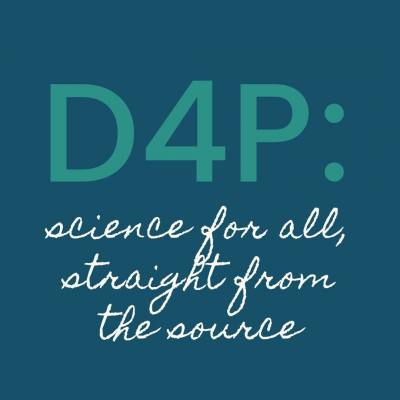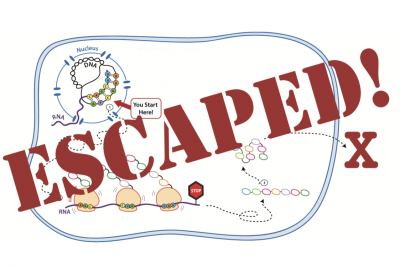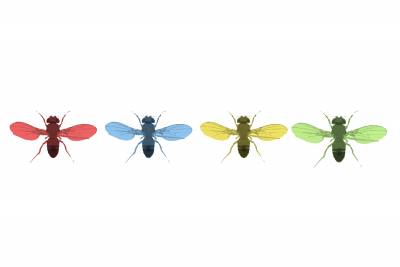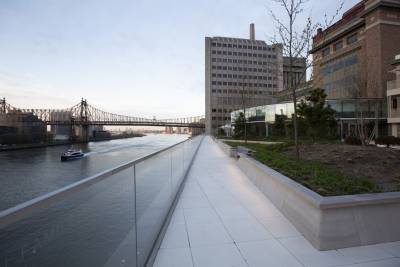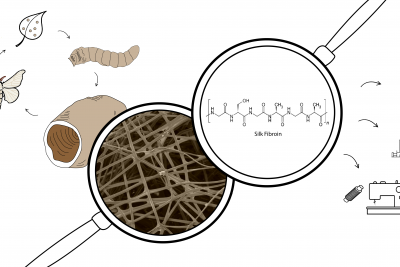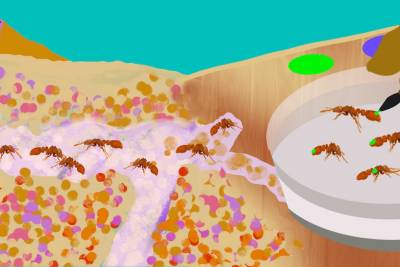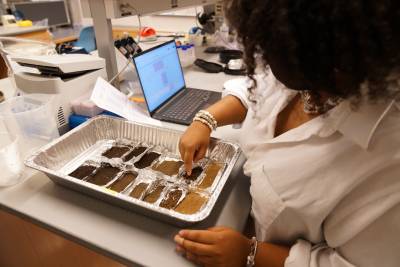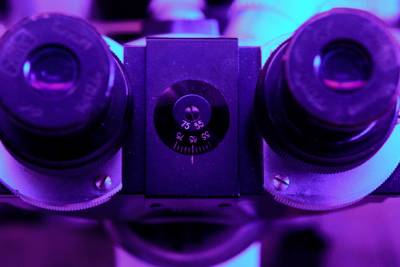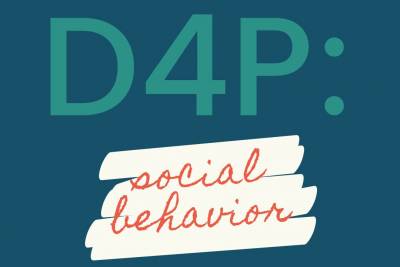D4P: COVID-19 Webinars
You can find all of the episodes in our COVID-19 season of D4P below! Each episode was presented by a scientific trainee — either a graduate student or a postdoc — who is also passionate about science communication and engagement. You can learn more about each presenter by visiting our D4P fellows page.
For each of the COVID-19 D4P pages below you can view the video from each webinar, read a short summary of the main ideas presented, and download a discussion guide to aid educators in discussing these papers with their learners.
Past D4P Webinars
Exploring the Immune Response in Patients with COVID-19
The recency of COVID-19 has made it difficult to fully grasp how human immune systems respond to the SARS-CoV-2 infection. Yet, in order to create an accurate picture of COVID-19’s impact on society and design appropriate serological tests, this information is critical. It is clear that humans are producing antibodies against this virus. However, we still need to understand the specific types of antibodies being made, and how long after infection can we expect our bodies to make them. Our D4P Fellow, Dr. Odaelys Pollard, presents data from the paper, “Antibody responses to SARS-CoV-2 in patients with COVID-19,” which chronicles the antibody response from 285 COVID-19 patients, and suggests a set of criteria for confirmation of infection.
About Our D4P Fellow
Odaelys Walwyn Pollard, PhD (she/her)
Dr. Pollard is the scientist educator for RockEDU Science Outreach. Before joining RockEDU, Odaelys worked on a variety of different initiatives around science education and outreach, and is a champion for equitable access to science. Odaelys is a trained microbiologist/immunologist, having earned her PhD at New York Medical College, in Westchester NY.
Insights on Treating Diabetic Patients with COVID-19
There is a vast spectrum of symptoms present in people with COVID-19. While some people remain asymptomatic, there are several known pre-existing conditions (co-morbidities) that correlate with increased disease severity. In this D4P presentation, scientist Viktor Belay presents data from “Association of Blood Glucose Control and Outcomes in Patients with COVID-19 and Pre-existing Type 2 Diabetes,” published in Cell Metabolism on April 30, 2020. The authors in this report set out to better understand the impact of COVID-19 in patients with type 2 diabetes through a retrospective study on affected patients in Hubei Province, China.
About Our D4P Fellow
Viktor Belay (he/him), Graduate Student @ Weill Cornell Medical Center
Viktor Belay is a first year PhD student at Weill Cornell Medicine in the Physiology, Biophysics, and Systems Biology program. He is currently rotating in the laboratory of Dr. Richard Hite, where he studies lysosomal protein function. Outside of science, Viktor loves distance running and vegan cooking! Find him on Twitter @belayviktor.
Modeling, Math, and Social Mixing
In this session of D4P, postdoctoral fellows Dr. Chloé Pasin and Dr. Sinead Morris discuss how scientists apply hypothetical modeling and math to predict the outcomes of lifting social distancing rules at various time points. Using a case study from The Lancet Public Health published on March 25, 2020, Drs. Pasin and Morris put into context disease modeling, and how the authors applied a model to predict what would happen in Wuhan, China under different scenarios of social mixing (i.e. when and how the population stops social distancing).
About our D4P Fellows
Chloé Pasin, PhD (she/her), Postdoc @ Columbia University
Chloé is a postdoctoral research scientist at Columbia University. She has a background in mathematics and is now trying to answer concrete clinical questions in infectious disease by using biostatistics and mathematical models. She loves the collaborative aspects of her work, as it brings together people with different background and expertise (immunologists, infectious disease specialists, mathematicians…). She grew up in Toulouse, South West of France and lived in different places (Paris, Bordeaux, Australia, Seattle WA) before moving to NYC. She is currently staying home with her partner and his cat, cooking a lot and practicing more yoga!
Learn more about Chloé by visiting her website and following her on Twitter @ChloePasin.
Sinead Morris, PhD (she/her), Postdoc @ Columbia University
Sinead is a postdoctoral research scientist at Columbia University. She uses mathematical models to understand how our immune systems respond to infectious diseases such as HIV and the flu. She grew up in Glasgow, Scotland, before moving to the US in 2013 to start her PhD. It was here that she first developed an interest in using maths to understand how viruses spread through populations, and how best to control them. She is currently sheltering at home with her boyfriend and their dog, Dixie, and in her spare time is rediscovering her love of drawing.
Repurposing Existing Medicines for COVID-19
In this installment of D4P, graduate students Lindsey Lopes and Emily Costa present data on the possible interactions between human proteins and SARS-CoV-2 proteins, and how this information can provide clues into using drugs already on the market for the treatment of COVID-19. The presenters put this research into context by demonstrating the process—from molecule to medicine—for getting a drug on the market via FDA approval.
About our D4P Fellows
Lindsey Lopes (she/her), Graduate Student @ Rockefeller University
Lindsey is a PhD student at The Rockefeller University in the Laboratory of Social Evolution and Behavior. She studies how ants communicate with each other using chemical signals. She is interested in how the brain is able to process these chemicals and coordinate the ant’s behavioral response. Before this, she was a student at Haverford College and University of Pennsylvania. She enjoys playing with her cats, baking, reading, and doing yoga when she is not in the lab.
Emily Costa (she/her), Graduate Student @ MSKCC/Weill Cornell
Em is a 4th year PhD candidate at Weill Cornell and a lung cancer researcher at Memorial Sloan Kettering. In this role, she studies how drugs that disrupt our cell’s response to DNA damage might improve the effectiveness of immunotherapy in small cell lung cancer. Before starting grad school, Em worked at various pharma and biotech companies in the Boston area and got her undergraduate degree at Northeastern University. When she’s not in the lab, you can find her writing and podcasting about science, making cyanotypes, or tending to an ever-growing family of houseplants.
Exploring the Possibilities of Reinfection
Since COVID-19 is a new disease for humans, researchers are still learning about the possibilities of contracting the disease more than once. However, understanding how SARS-CoV-2 — the virus that causes COVID-19 — affects our immune system is critical for establishing policies around social mixing. While many researchers are still in the early stages of scientific discovery around COVID-19, there are some clues to suggest that we can develop immunological memory. Our D4P Fellow, Joe Levin, presents data from one of these studies, highlighting both the research process, and possible future directions.
About our D4P Fellow
Joe Levin (he/his), Graduate Student @ Rockefeller University
Joe is a PhD student at The Rockefeller University in the Laboratory of Structural Biophysics and Mechanobiology. In his free time, Joe enjoys exploring the New York City food and drink scene, and loves backpacking off-the-grid! Eventually, Joe hopes to traverse the Appalachian Trail. You can learn more about Joe through our Scientists of NY series on the RockEDU blog, The Incubator
Testing for COVID-19 Immunity
In this installment of D4P, Dr. Odaelys Pollard breaks down a scientific report describing the development of an important diagnostic tool for COVID-19. This paper, submitted to the pre-print server, medRxiv, in March 2020, was made possible by the collaboration of many scientists and scientific institutions, representing the US, Finland, Switzerland, and Australia.
About Our D4P Fellow
Odaelys Walwyn Pollard, PhD (she/her)
Dr. Pollard is the scientist educator for RockEDU Science Outreach. Before joining RockEDU, Odaelys worked on a variety of different initiatives around science education and outreach, and is a champion for equitable access to science. Odaelys is a trained microbiologist/immunologist, having earned her PhD at New York Medical College, in Westchester NY.
Can Surgical Masks Prevent Viral Spread?
In this installment of D4P, Francisca Martinez Traub presents data from a scientific report on the effectiveness of surgical masks in preventing the spread of respiratory viruses, including the coronavirus. This paper was peer-reviewed and published in Nature Medicine (April, 2020), and represents the collaborative effort among scientists in Hong Kong and the United States.
About our D4P Fellow
Francisca Martinez Traub (she/her), Graduate Student @ Rockefeller University
Francisca is a graduate student researcher at The Rockefeller University, originally hailing from Chile. Francisca is fascinated to learn how neuronal networks in the brain are able to drive animal behavior, though she also very much loves biochemistry and genetics. When she is not in the lab, Francisca likes to travel, particularly to national parks for long backcountry hikes to escape crowds and city intensity.
Tracing the Origins of SARS-CoV-2
Paper: The Proximal Origin of SARS-CoV-2
In this installment of D4P, Dr. Andrés Mansisidor presents a review article that reviews data from over 30 peer-reviewed publications that examine the genetic lineage and sequence similarities of the SARS-CoV-2 virus in humans. This paper, “The Proximal Origin of SARS-CoV-2” was published in Nature Medicine in April 2020, and has already been viewed nearly FIVE MILLION times.
About our D4P Fellow
Andrés Mansisidor, PhD (they/them), Postdoctoral Fellow @ Rockefeller University
Dr. Mansisidor is a postdoctoral researcher in the Laboratory of Genome Architecture and Dynamics at The Rockefeller University. Andrés hearts all things DNA. During PhD training, they studied how DNA breaks and repair help genome evolution. As a postdoc, they are continuing to peer into the genome and it’s organization. Andrés is a proponent of variation in it’s many contexts, and they adore the famous Dobzhansky quote, “Nothing in Biology Makes Sense Except in the Light of Evolution.

